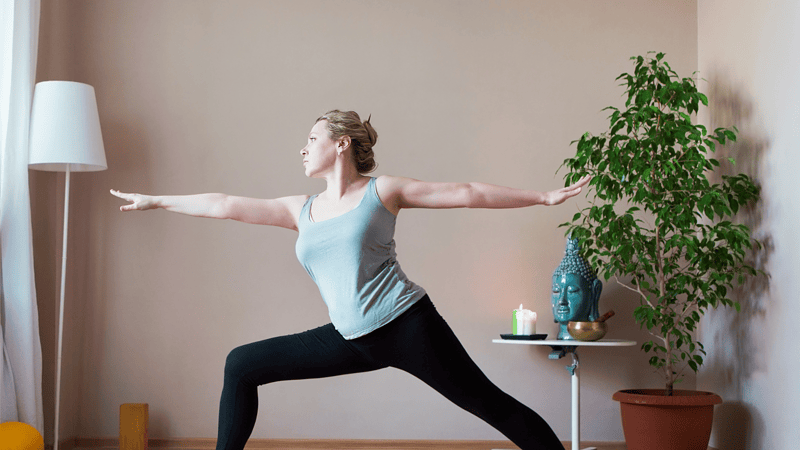
Don't ignore your pelvic floor
Maria Kondrashova outlines the importance of pelvic floor exercise for mums-to-be
We’ve all heard something about the pelvic floor, about where it is, but never really paid any attention to its health. Unfortunately, most of us only realise the importance of pelvic floor exercise after experiencing incontinence, reduced sensation or uncontrolled passing wind. So lets draw attention to this part of the body, not only at pregnancy but at any other period of life.
Just in case you’re unsure, here are the basics. A woman's pelvic floor muscles support her womb, bladder, and bowel. The urine tube, the vagina, and the anus all pass through the pelvic floor muscles. If the muscles are weedy, these organs may lower down and not perform as they should. It’s been found that 30% of women can’t activate their pelvic floor correctly, hence putting themselves at risk of associated dysfunctions.
But first things first: you need to find out which muscles you need to train. It’s important to correctly identify your pelvic floor muscles before moving into a regular exercise programme. Squeeze muscles around your back passage as if you are trying to stop passing wind. Squeeze the muscle as if you are trying to stop a urine stream.
Squeeze your vaginal muscle. Do you feel an internal lift? This is your pelvic floor working!
Common causes of a weakened pelvic floor may include pregnancy and childbirth — that’s why regular exercise is essential! You can do it anywhere: watching TV, washing dishes or chatting on the phone. No one would really notice what you are doing and just 10 minutes a day could make a huge difference.
If you haven’t exercised your pelvic floor before, pregnancy is a good time to start. Pelvic floor muscle training will help the body cope with the growing weight of the baby, while healthy, fit muscles before baby is born will mend more easily after the birth. But don’t stop there; make it habitual.
In case of any concern, the exercises here are not harmful. You should find them easy and relaxing. If you get back pain or stomach pain afterwards, you are probably trying too hard and using your stomach muscles instead. If you experience headaches, then you are also tensing your chest muscles and probably holding your breath. If performed correctly, the practice is totally safe at pregnancy — though if you keep experiencing pain, consult your GP.
Maria Kondrashova is founder of Pommama, a London specialist in pre- and postnatal yoga offering individual yoga classes face-to-face in London and livestream online practices anywhere else in the world. Visit: pommama.com
3 Pelvic Floor Exercises
1. Sit comfortably in Butterfly position and contract the pelvic floor on the inhale on a count of 5, release with an exhale on a count of 3. Start with 10 repetitions.
2. Stay on all fours and start with Cat Cow; don’t forget to add breathing to the movement. Round your spine on exhalation, back bending on inhalation. Then add activation of the pelvic floor on an inhale and release it on the exhale.
3. Sit in a cross-legged position. Contract pelvic floor muscles. Focus on pulling in both rectum and vagina simultaneously. Inhale for 5, release for 3. Repeat 5 times.
Increase the counts, keeping longer inhales, and repetitions as you become more familiar with the practice.





